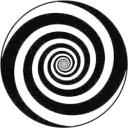Yahoo Clever wird am 4. Mai 2021 (Eastern Time, Zeitzone US-Ostküste) eingestellt. Ab dem 20. April 2021 (Eastern Time) ist die Website von Yahoo Clever nur noch im reinen Lesemodus verfügbar. Andere Yahoo Produkte oder Dienste oder Ihr Yahoo Account sind von diesen Änderungen nicht betroffen. Auf dieser Hilfeseite finden Sie weitere Informationen zur Einstellung von Yahoo Clever und dazu, wie Sie Ihre Daten herunterladen.
Einstein's Faith?
Walter Isaacson wrote a great biography on the life of Einstein and mentions that he disproved a provable God detectable by instruments and physical sense, but accepts a God that is expressed as the totality of the universe (which is omniscient, omnipotent, and omnipresent) and not the out of date "Zues" depiction.
If Atheism is based on logic, what are your feelings or thoughts of one of histories most logical person believe in a higher power?
I guess no one understood what I was trying to say. I'll leave it alone because no one has grasped the essence of what I meant.
14 Antworten
- Anonymvor 1 JahrzehntBeste Antwort
Einstein was a self-proclaimed Pantheist, and you are confusing "a higher power" with god.
"I cannot conceive of a God who rewards and punishes his creatures, or has a will of the kind that we experience in ourselves. Neither can I nor would I want to conceive of an individual that survives his physical death; let feeble souls, from fear or absurd egoism, cherish such thoughts. I am satisfied with the mystery of the eternity of life and with the awareness and a glimpse of the marvelous structure of the existing world, together with the devoted striving to comprehend a portion, be it ever so tiny, of the Reason that manifests itself in nature." ~ Albert Einstein
- vor 5 Jahren
I remember a post like this which indicated little "Einstein's" age around 8 or 9 years old and this happened in class. Like, they brought recorders in class during that time, or Einstein's classmates were diligently transcribing this "conversation" verbatim. And if this were true, this was Einstein with the mind of a child! And does not reflect his religious views in adulthood at all. Is there not a famous figure who is a "God" believer that they could credibly use for this drama?!?! Very typical of theists! Plagiarism and misrepresentation just so they can feed their insatiable need for all their religious drama. fFom Snopes: Origins: For those looking for a quick answer of whether this item is literally true, we'll state upfront that it is not. Nothing remotely like the account made above appears in any biography or article about Albert Einstein , nor is the account congruent with the scientist's expressed views on the subject of religion. His name has simply been inserted into an anecdote created long after his death in order to provide the reading audience with a recognizable figure and thus lend the tale an air of versimilitude.
- zeroLv 6vor 1 Jahrzehnt
I believe that Albert Einstein had a right to be illogical and believe in a higher power if he wanted to. I think that is everyone's right. I have a right not to accept as real something that is not "detectable by instruments and physical sense." Einstein also had a failed marriage and strained relationship with his son, despite being very intelligent. Obviously he had strengths in some areas and weaknesses in others. Just like everyone else. I hardly think of him as an authority on the supernatural and I doubt he would describe himself as that either.
- VishalLv 6vor 1 Jahrzehnt
I have no problem with the fact that he believed in a higher power, and in fact would go as far as to say I revere the same natural forces he did. I simply don't call them God.
Einstein wasn't one of history's "most logical [people]." He was one of the smartest, and there's a crucial difference there. However, even that's irrelevant. Despite all his intelligence and extensive learning, Einstein was wrong about Quantum Physics. If he could be wrong about a topic in which he was so well versed, why should I expect his religious views to be accurate?
- Wie finden Sie die Antworten? Melden Sie sich an, um über die Antwort abzustimmen.
- Jeff DLv 4vor 1 Jahrzehnt
Einstein's conception of "god" was not of a "higher power" that transcended or that wasn't bound by the universe's physical laws, but of a grand, over-arching, awe-inspiring regularity and order (structure, predictability, etc.) of the universe -- a universe that could be understood and explained -- perhaps never completely but with greater detail as our knowledge increases.
Einstein was essentially a pantheist in the mold of Spinoza (but Einstein denied being a pantheist, see below), and he used "god" as a label for something that he cherished, but did not resemble at all the god who answers prayers, intervenes in the world, or has plans or intentions or "knowledge." Einstein did not believe in a personal god or prayer or an immortal soul and he said so many times. I personally think that Einstein used the word "god" too loosely and too freely to describe the universe's order -- it's 180 degrees different from what most believers mean when they say the word "god."
Einstein tended to criticize atheists, especially outspoken ones (Were Einstein alive now, I suspect he would like Dan Dennett but criticize Richard Dawkins), and he was consistently tolerant of a wide variety of religious views even though he privately thought many of them were bunk.
I wouldn't say that Einstein was one of history's "most logical persons." He was certainly one of history's most original and imaginative thinkers, and his prodigious output between 1900 and 1920 owedmuch more to his imagination and his ability/willingness to think outside the box and challenge old assumptions than to "logic."
Here are my two favorite quotes from Einstein's own pen about his "religious" outlook:
"The most beautiful emotion we can experience is the mysterious. It is the fundamental emotion that stands at the cradle of all true art and science. He to whom this emotion is a stranger, who can no longer wonder and stand rapt in awe, is as good as dead, a snuffed-out candle. To sense that behind anything that can be experienced there is something that our minds cannot grasp, whose beauty and sublimity reaches us only indirectly: this is religiousness. In this sense, and in this sense only, I am a devoutly religious man."
Albert Einstein, from his 1930 essay “What I Believe,”
quoted in Mario Livio, The Golden Ratio
(New York: Broadway Books, 2002), p. 4.
"It was, of course, a lie what you read about my religious convictions, a lie which is being systematically repeated. I do not believe in a personal God and I have never denied this but have expressed it clearly. If something is in me which can be called religious then it is the unbounded admiration for the structure of the world so far as our science can reveal it."
Albert Einstein, The Human Side, ed. H. Dukas and
B. Hoffman (Princeton: Princeton University Press 1981).
Isaacson's book describes an interview that Einstein gave around his 50th birthday in which he answered the question of whether he believed in god [In my opinion, Einstein was a rare example of a theological non-cognitivist who used the word "god" regularly even though he thought that the concept was really beyond the understanding of puny human brains]:
"I'm not an atheist. I don't think I can call myself a pantheist. The problem involved is too vast for our limited minds. We are in the position of a little child entering a huge library filled with books in many languages. The child knows someone must have written those books. It does not know how. It does not understand the languages in which they are written. The child dimly suspects a mysterious order in the arrangement of the books but doesn't know what it is. That, it seems to me, is the attitude of even the most intelligent human being toward God. We see the universe marvelously arranged and obeying certain laws but only dimly understand these laws."
- synopsisLv 7vor 1 Jahrzehnt
einstein did not believe in life after death. he did not believe in a personal god. nor did he believe that any higher power played any part in the working of the universe.
walter isaacson thinks that this makes einstein a believer.
this is called special pleading.
- Anonymvor 1 Jahrzehnt
Who said atheism is based on logic?
Atheism is based on the disbelief of any god. THAT'S IT!
Everything else is totally out the window.
- Anonymvor 1 Jahrzehnt
Atheism isnt really based on anything. If anything, its based on faith that traditional religious people are a bunch of morons.
Einstein can think what he wants too. maybe there is some power. but from my perspective, it makes no difference.
- Anonymvor 1 Jahrzehnt
You are mixing up "higher power" and "god". Einstein did not believe in a 'Personal God' and he said so explicitly on many occaisions.





